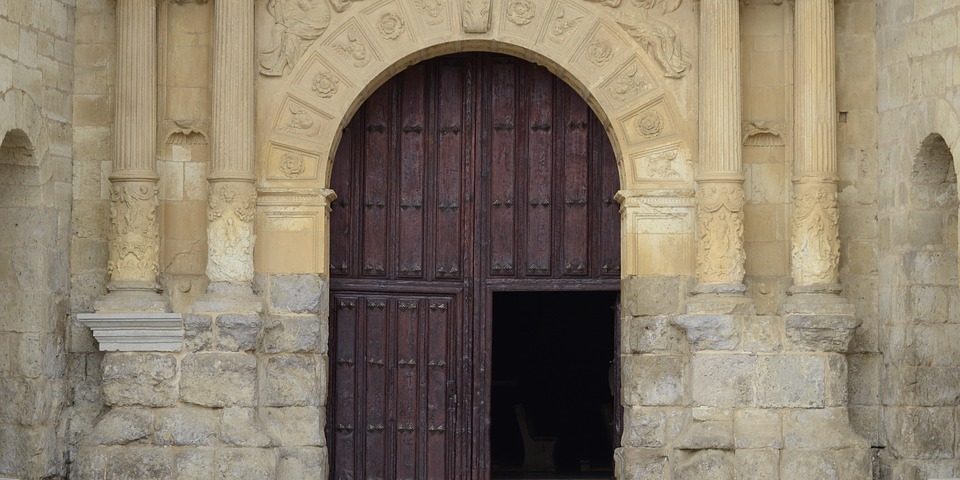“For he is a lowly door, Christ the Lord.” -St. Augustine
It was hard to swallow, the idea that Jesus was the Lord. It’s precisely what many just couldn’t believe. Authorities, the educated and elite, just couldn’t accept it. The idea this peasant was the Messiah didn’t fit, didn’t make sense. For them, the Galilean cut a poor figure, not divine at all. Which is why they rejected him, laughed at him and eventually crucified him.
But, of course, they rejected him not because they saw Jesus for what he really was, but because they were blinded by their own arrogance and pride (John 5:44). Because they were blind though they claimed to see (John 9:39-41). Jesus didn’t fit their conception of the Messiah; they didn’t consider that it might be they who were mistaken. They were prideful and therefore blind. And so, they couldn’t open themselves to what was right in front of them—their God and savior.
Which is the lesson. In the gospel for this Sunday Jesus calls himself the “gate of the sheep” and also the “shepherd.” He says the sheep know the voice of the shepherd and follow him. A rather complicated parable; nonetheless, the meaning is simple. Jesus is the shepherd, that is, the rightful leader of God’s people. Thus, one should “hear his voice” and follow.
This is a rather subversive invitation in that kings and rulers were often likened shepherds; the political tone of Jesus’s words should not be overlooked. Jesus here is blatantly challenging the leadership of those who presumed to lead God’s people. They are the bad shepherds; Jesus is the good shepherd. Other leaders are thieves and robbers; Jesus lays down his life for his sheep. It’s just that people must see and accept the beauty of the good shepherd for themselves. They must be humble enough to accept the humble peasant Jesus as king.
Which was St. Augustine’s point, calling Christ a “lowly door.” To enter the door, which is Jesus, we must make become lowly like him. Augustine said we should take care not to bump our head! To become a believer, to become a good Catholic, we must become like sheep—not mindless, of course, but certainly leadable. Which is hard for us: to become truly leadable. Because we don’t like obedience; it’s not our style. Even good Catholics are often bad at it. Which is why we Catholics are often as blind as everybody else. Because we don’t know how to lower ourselves enough truly to follow Christ. Because we don’t know how to be sheep.
Hence our urgent need for humility, each of us—we sheep who may talk a good game but who wander, proud and blind.










